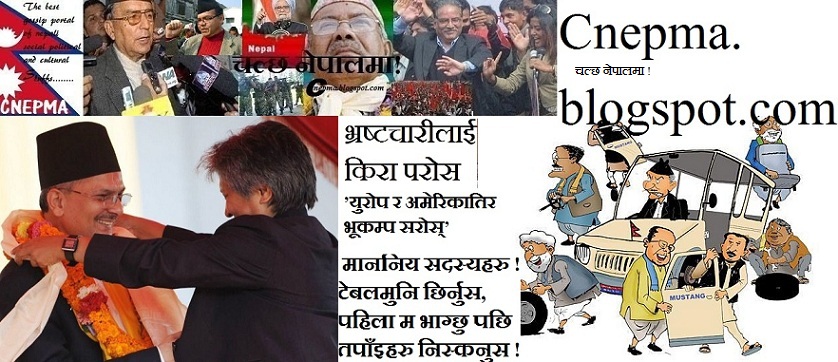
The first female general secretary of Kathmandu’s Tribhuvan University Students’ Union, and most reckon it will not be long before she embosses her presence on the national stage.
She’s called Manushi and she’s a new-generation Maoist. She is also the only daughter of Baburam Bhattarai and Hisila Yami, the first couple of Nepal’s revolutionary movement.
“It has often been tough being their daughter, it was a very different childhood, and now I sense I don’t make too many friends because people keep their distance because of whose daughter I am,” Manushi, 21, says, “but for all the difficulties and disadvantages that came with it, I would not be anyone else, I think my life has been a huge, huge privilege.”
The early part of that life was spent in Pedong near Kalimpong, where Manushi attended to St. George’s under the alias of Asmita Singh.
“My parents went underground very soon after I was born, and I was literally smuggled into India under a fake name, it was just a way of getting me educated away from the ferment in Nepal,” Manushi says.
“I was used to my parents’ absence since I was born probably, the constant instability and the secrecy that pervaded my aunt’s home. I remember attending torch rallies in Kathmandu as a little girl, and screaming at rallies, and I remember Prachanda coming home secretly, but it was getting difficult, there was always somebody following me thinking my movements could lead them to my parents. I had to be taken out, and I suppose north Bengal was a convenient place initially. My father used to be able to come there to see me often because it was so close to Nepal in so many ways.”
We’re in a downtown eatery, quite evidently a hangout favoured by Kathmandu’s trendy young. The young Maoist is as seamlessly at ease here as she would be leaning on political barricades. She’s in jeans and a hooded jersey, and she has a backpack full of books and journals.
“The frustration sometimes is I cannot read and write as much as I want to or should,” Manushi says, grimacing over her coffee, “there is too much else to do with the party, and with this crisis.”
Remind her she just topped her MA (political science) class and she grimaces again, as if to suggest that’s never nearly enough. Besides, she’s probably used to topping the class; she did it a couple of years ago, securing her bachelor’s degree from Delhi’s Lady Shri Ram College. The records would show top honours assigned to one Asmita Singh.
Father Baburam wanted Manushi to pursue higher studies at JNU, the Maoist ideologue’s own alma mater, but she thought she’s already spent too much time out of Nepal. “He really pressed me at one stage, and part of it had to do with his own association with JNU, but there is so much to be done here,” Manushi says, suddenly animated now that she was talking politics. “We are in such a critical and interesting time, I would not be anywhere else at the moment, it’s really challenging to be part of all this, especially party work.”
Did she ever feel pressured to follow in her parents’ ideological footsteps?
“Ah, but that’s all the life I have lived, in the cradle of the revolution, so to speak. I remember when my parents could not come to see me for long periods in Pedong, they would send letters. All of them were about the war they were engaged in and what they were aiming to do, it was like my subconscious schooling, those letters made my political orientation. I have always thought like this, since I can remember.”
No matter that the Maoists have been sliced out of Nepal’s power equation, no matter that it seems unlikely they’ll be able to make a comeback anytime soon, to Manushi it’s just the “rightness” of the struggle she is part of.
“Just look at Nepal, where we are stuck, and it is clear that we are on the right path, saying the right things,” she says.
“We will prevail, I think, it is a matter of time. We will have to fight and convince people, especially young people who say we have the right objectives but take the wrong means. They think violent tactics are wrong, I think sometimes they are scared of us, and sometimes they do not have a sense of what is happening outside Kathmandu. But eventually I think the Maoists will prevail, that looks inevitable, we just have to persist with this struggle.”
So issuing her calm optimism, she’s off into the teeming bustle of Kathmandu to find a book her father has tasked her to procure. It’s on Nepal’s current crisis and it’s called Paradise Lost.

No comments:
Post a Comment